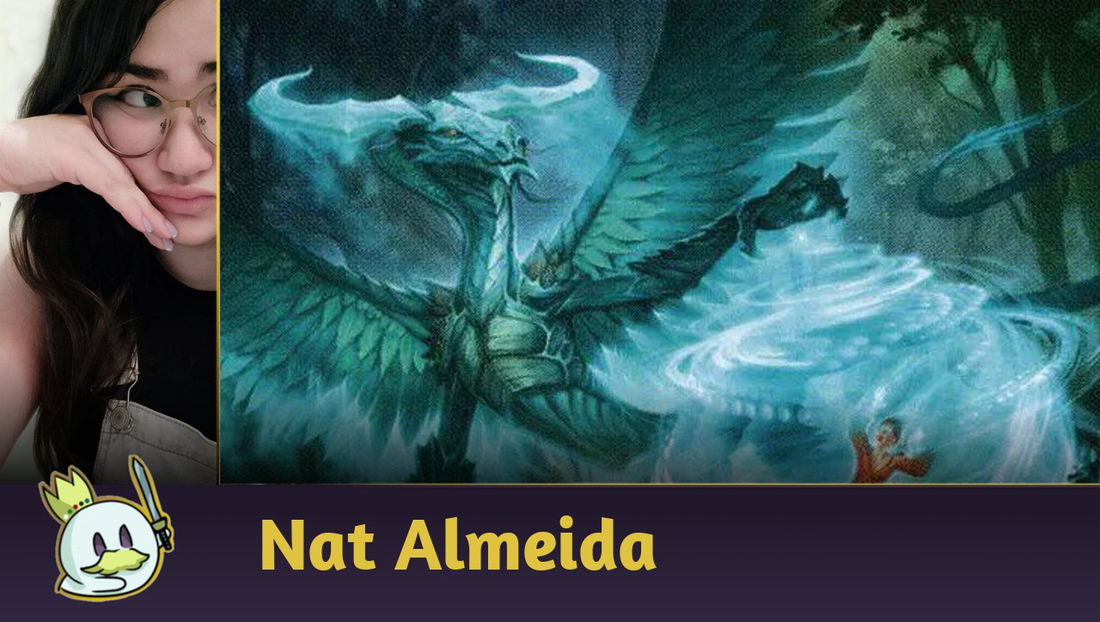Introduction
Today, we'll talk about Poker! Ok, we're not going to talk about Poker, the traditional card game per se, but rather placing all your bets on a single play. We're going to talk about Oops! All Spells!

If you don't know how this deck works, here's its simple strategy: create 4 mana (1 should be black), and then either play Balustrade Spy or play and activate Undercity Informer. The result in either case is the same: your deck has no lands, and, therefore, you'll mill it all at once.
Hello? No lands? Yeah, that's where the name of the deck comes from: with a combination of Spirit Guides (Simian Spirit Guide and Elvish Spirit Guide), Rituals (Dark Ritual and Cabal Ritual), Lotus Petal, and MDFC "lands" (Fell the Profane, Agadeem's Awakening, Sink Into Stupor, etc), this deck can create mana for its combo without actually using any lands. The front side of your MDFCs count as spells to Spy's and Undercity's abilities.
Once you activate their abilities, your entire deck will go to your graveyard and, thus, Narcomoebas will enter play. Then, you can sacrifice them for Cabal Therapy to make sure nothing will stand in your way. Bridge From Below and Poxwalkers will give you all the extra bodies you need, and, finally, you'll pay for Dread Return's Flashback cost, and Thassa's Oracle will enter play to finish the game.
Thoughtseize and Pact of Negation will help you play your combo through enemy defenses. Memory's Journey will give you another chance to combo again, as, with it, you get to reshuffle Reanimate and/or Thassa's Oracle, usually as an answer to a Faerie Macabre or a Surgical Extraction.
If Jack-o'-Lantern is in your graveyard, you'll be able to filter mana and either pay for Memory's Journey's Flashback or Thassa's Oracle second blue mana - that is, if you need to combo a second time.
Deckbuilding
The list we'll review today was played by one of this archetype's biggest enthusiasts, known online as "faultedform". The base is the same: to combo, we have 8 of its key creatures (Balustrade Spy and Undercity Informer), 1 Thassa's Oracle, and 1 Dread Return.
To accelerate your mana, we play 8 Spirit Guides, 4 Lotus Petal, and 4 Dark Ritual.
As for protection, we have 4 Pact of Negation, 3-4 Thoughtseize, and 2 Cabal Therapy.
For your MDFCs, most lists use around 12 and combine the black ones (Fell the Profane, Boggart Trawler, or Agadeem's Awakening), the blue ones (Hydroelectric Specimen or Sink Into Stupor), and the green ones (Disciple of Freyalise or Turntimber Symbiosis), depending on how the deck and the sideboard are built.
Outside this core, most lists use a support kit that complements the deck's overall strategy: Bridge from Below and Poxwalkers help in matches where you need a bit more attrition to push your Cabal Therapys through. Memory's Journey and Reanimate make it possible for you to push your combo through 2 times with only the main deck. Jack-o'-Lantern or Wild Cantor (this last one exclusively in lists with Summoner's Pact) filter mana colors, and Cabal Ritual complements your acceleration.
A few other cards I found in other lists are Beseech the Mirror, Chrome Mox, Culling the Weak, Entomb, Goblin Charbelcher, Lively Dirge, Once Upon a Time, Unmask, and the aforementioned Summoner's Pact.
The list above, which we reviewed in this article, is quite balanced, as it uses 12 MDFCs (8 black, and 4 blues), and doesn't cut down on Thoughtseizes or Narcomoebas. It also plays 2 Jack-o'-Lantern to drastically increase your odds of putting at least 1 copy of it in your graveyard when you mill your deck. Furthermore, it practically plays all the key cards most lists do: Bridge from Below, Poxwalkers, Memory's Journey, and Reanimate.
Mulligan
My greatest tip for playing combo decks is: "you're playing a combo deck, so mulligan after your combo". In this case, this is even more critical - your Mulligan is the most decisive moment of the match. This is a turn 1-combo, so you need to play it on turn 1 or send your entire hand back into your deck. A hand that doesn't combo on turn 1 is only acceptable if you're cutting down to 4 cards or, in a few specific cases (and if you know your opponent), when you open the way for your combo by discarding a card on turn 1. Then, all you need to do is complete the setup on turn 2.
However, once again, I stress that this only applies to a few select cases. This deck loses every turn you don't combo. It is Legacy's All-In archetype.
Hand examples:

You just need to draw 1 black mana to combo on turn 2 with this hand, all under Pact's protection. It's worth the risk, right? Remember what I said above? If you can't combo on turn 1, you need to send the whole hand back. You don't have cantrips, and you don't have enough time to find your cards. Verdict: Mulligan.

This hand doesn't combo on turn 1, so: Mulligan. However, it is an exception if you know your opponent's deck because you can play Undercity Informer on turn 1 with it and have enough mana to activate it on turn 2. If, and only if, you're against a deck you know can't destroy your land with Wasteland and won't remove your Informer before it is your turn again. So, it is only viable in a very unusual situation (a possible opponent for this scenario is Elves). Verdict: Nearly always Mulligan.

This hand has the combo, but doesn't have the mana to protect it against Thoughtseize. Do you risk it? Of course, you've already committed to going all-in when you decided to play this deck! Verdict: Keep!

This hand has the combo, protection, and mana. It is the reason this deck sees play. Verdict: Instant keep.
Building the Sideboard
The sideboard of a deck that focuses so much on a single strategy is often a point of debate among its fans. The list we presented above includes: extra disruption against counters (Duress), an answer against problematic permanents (Echoing Truth), an answer against any abilities that remove cards from your graveyard (Stifle), and an element that demands further explaining - extra copies of Thassa's Oracle and blue MDFCs.
The idea is to add more redundancy to the combo even when facing effects that can remove your graveyard or answer your Dread Return. With extra copies of Oracle, you'll also be able to play alternative strategies, and some can even change the focus of this deck; instead of a turn 1 deck and nothing else, you'll be able to "split" your combo:
• For six mana, you can mill your entire deck, play an Oracle from your hand, and combo regardless of your opponent's answers;
• If your opponent exiles your graveyard, you can use Memory's Journey's Flashback to put enough cards in your deck and make sure an Oracle in your hand wins the game on the spot. You can also return a few Oracles to combo on the next turn.
• If they try to exile your Oracles with a common card like Faerie Macabre, Journey will return the third copy to your empty deck and give you another round.
Keep in mind Jack-o'-Lantern helps you pay for Oracle's 2 blue mana.
Outside your main strategy, here are a few cards that stand out in this archetype (many of which use the green base instead of the blue one): Ancient Grudge, Disruptor Flute, Faerie Macabre, Force of Vigor, Force of Will, Into the Flood Maw, Nature’s Claim, Unmask, and Xantid Swarm.
This list presented a transformative sideboard with the Chain of Smog / Witherbloom Apprentice / Spoils of the Vault combo. It is an interesting idea, but I don't know if it is effective enough.
Sideboard
Frognator
There is no easy game against a deck that plays both 0-cost counters and discards, but you can overwhelm their defenses if you keep hands with the combo and some form of protection. If they don't know your deck, they might just keep a hand without Force of Will as well. Once again, you should go all in.
Post-side, make sure to add more disruption.
In:

Out:

Eldrazi Aggro
In game 1, they can't really defend themselves against your combo. At most, they can play Chalice of the Void or Vexing Bauble, which disrupt but don't interrupt your combo completely. To play around Bauble, you'll have to return Reanimate to your deck with Memory's Journey and bring back Oracle when it's your turn again.
Their main graveyard answer is Leyline of the Void. You can answer that both with Echoing Truth or simply by exiling your entire deck, ignoring the Leyline, and playing Thassa's Oracle from your hand.
If you know or suspect they'll play Faerie Macabre instead of the Leyline, add Stifle instead of Echoing Truth.
In:

Out:

Red Stompy
Just like against Eldrazi, Oops! All Spells usually performs well in game 1 against this deck. Their answers simply don't fit this deck's strategy and, if they don't start playing, they'll have no answers! Their most common graveyard answer is Faerie Macabre.
In:

Out:

Control
This matchup is a bit stressful. They won't exactly punish you if you don't play your combo on turn 1. However, if you fail to execute your plan turn after turn, they'll eventually have too many answers, and you won't be able to push through them. Against this deck, you should open your turn 1 by discarding a card to understand what you need to answer, and try to combo on the next turn. And that basically applies after you sideboard as well.
In:

Out:

Painter
As this deck can't access Force of Will, they're also very vulnerable in game 1. Their counters also need Painter's Servant to work. Stacking your Thassa's Oracles is also not that strong in this case because they play several Pyroblasts.
In:

Out:

Final Words
Ever since the old 2-land Belcher came along ten years ago, combos that use an obscenely low number of lands are part of Legacy. They're usually reigned in by the everlasting presence of Force of Will.
Oops! All Spells, through Thassa's Oracle, is a constant threat because not many decks can interact with it besides the ones that play Force of Will. However, its own inconsistency prevents it from completely dominating the format. I often say that, if this deck had a slightly higher win rate, some of its pieces would immediately be banned.
So far, it is an option for anyone who enjoys fast matches in Magic Online, or for anyone who considers themselves lucky.
What about you? What do you think of this deck? Tell us your thoughts in our comment section below.
Thank you for reading, and see you next time!














— commentaires 0
, Réactions 1
Soyez le premier à commenter